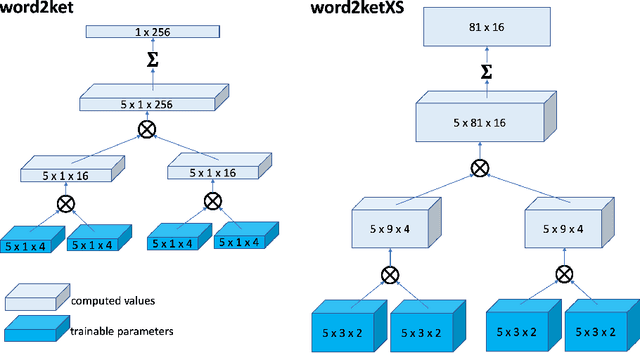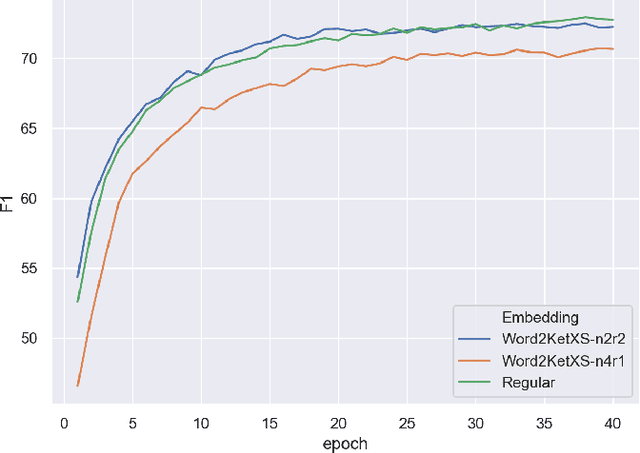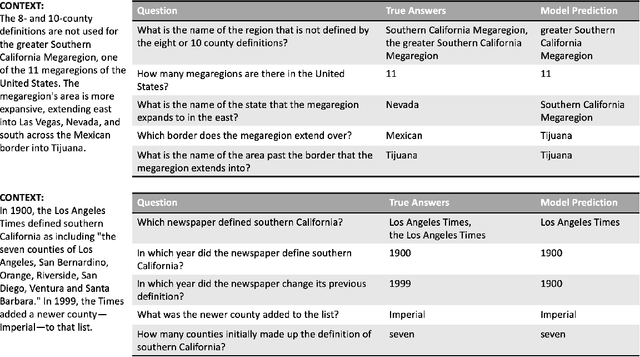word2ket: Space-efficient Word Embeddings inspired by Quantum Entanglement
Paper and Code
Nov 12, 2019



Deep learning natural language processing models often use vector word embeddings, such as word2vec or GloVe, to represent words. A discrete sequence of words can be much more easily integrated with downstream neural layers if it is represented as a sequence of continuous vectors. Also, semantic relationships between words, learned from a text corpus, can be encoded in the relative configurations of the embedding vectors. However, storing and accessing embedding vectors for all words in a dictionary requires large amount of space, and may stain systems with limited GPU memory. Here, we used approaches inspired by quantum computing to propose two related methods, {\em word2ket} and {\em word2ketXS}, for storing word embedding matrix during training and inference in a highly efficient way. Our approach achieves a hundred-fold or more reduction in the space required to store the embeddings with almost no relative drop in accuracy in practical natural language processing tasks.
 Add to Chrome
Add to Chrome Add to Firefox
Add to Firefox Add to Edge
Add to Edge